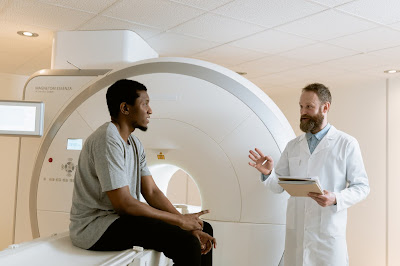
COVID-19 has become a huge public health issue across the world. Currently, the spread of COVID-19 is far from done, and different consequences have heightened public awareness, necessitating the development of innovative tools to help in diagnosis and treatment.
The effects of COVID-19 on the brain can be precisely assessed by positron emission tomography, according to research presented at the Society of Nuclear Medicine and Molecular Imaging (SNMMI) 2021 Annual Meeting (PET). Patients with newly diagnosed COVID-19 who required inpatient treatment and PET brain scans were shown to have abnormalities in neuronal function and concomitant cognitive impairment, which persisted six months following diagnosis in some.
According to a study published in the European Journal of Nuclear Medicine and Molecular Imaging in May 2021 by Chentao Jin et al., positron emission tomography (PET) is expected to offer pathophysiological variations of COVID-19 in the molecular/cellular perspectives and facilitate clinical management of patients. Furthermore, PET has a high potential for improving and managing COVID-19. Furthermore, molecular imaging researchers would be heavily involved in the development of COVID-19-targeted medicines, contributing to ex vivo screening and in vivo validation. If the function of PET in the COVID-19 pandemic era is thoroughly investigated, the paradigm might be employed in the future to battle a variety of different epidemics.
